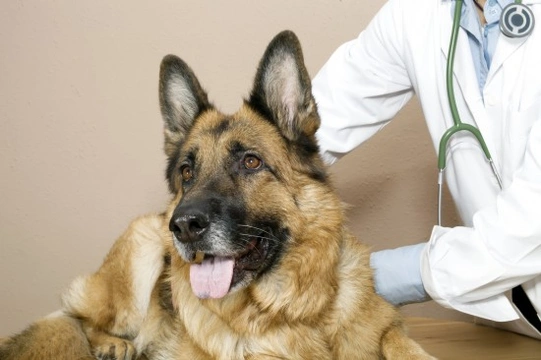
Ovarian Remnant Syndrome: Why Your Spayed Dog Appears in Season
In the UK, spaying female dogs is a common and responsible practice to prevent unwanted litters and reduce stray populations. However, some owners find their spayed bitches mysteriously displaying behaviours and physical signs associated with being in season. This rare but distressing situation can be caused by ovarian remnant syndrome (ORS), where small pieces of ovarian tissue remain after surgery and continue producing hormones.
This article explains how ovarian remnant syndrome can cause a spayed dog to appear in season, what signs to watch for, and the treatment options to restore your pet's wellbeing.
How Does Ovarian Remnant Syndrome Cause Heat-Like Symptoms?
During a spay operation, a vet removes the ovaries and often the uterus to prevent your female dog from coming into heat or becoming pregnant. Occasionally, however, a tiny fragment of ovarian tissue is unintentionally left behind inside the abdomen. Even a tiny remnant is enough to secrete oestrogen hormones that trigger the normal heat cycle behaviours and physical changes.
This residual tissue may start producing hormones weeks, months, or even years after the spay, resulting in false signs of being in season. These include vulvar swelling, vaginal bleeding, and behavioural changes typical of an unspayed bitch.
Recognising the Symptoms Your Dog Might Display
Behavioural signs of being in season in a spayed bitch often include restlessness, increased affection, swelling of the vulva, and attention-seeking from intact males. You might notice nesting behaviours or your dog may seem clingy or temperamental during these times.
Physically, there may be bleeding or discharge from the vulva, and swelling that resembles a genuine season. If these physical signs are noticeable, it is important to confirm your dog was truly spayed, ideally with a veterinary examination to check for surgical scars or test for ovarian tissue.
Behavioural Changes Without Physical Signs
Sometimes, spayed dogs might show behavioural changes typically linked with heat, like increased attention to males or changes in mood, without obvious physical indicators. This might be due to false seasons or other behavioural issues unrelated to hormones.
Tracking your dog's cycles and duration of these behaviours is important. If these behaviours last intermittently in two to three week cycles, false seasons are likely. If more continuous, behavioural problems may need assessment and support from a qualified animal behaviourist.
Diagnosis of Ovarian Remnant Syndrome
If ovarian remnant syndrome is suspected, your vet can perform blood tests to measure hormone levels such as progesterone or anti-Müllerian hormone, which indicate the presence of ovarian tissue. Ultrasound examinations can also help identify remnants inside the abdomen.
Definitive diagnosis usually requires an exploratory laparotomy, a surgical procedure under general anaesthetic, allowing the vet to visually locate and confirm any ovarian remnants.
Treatment Options for Affected Dogs
The most effective treatment for ovarian remnant syndrome is surgical removal of the remaining ovarian tissue. During an exploratory laparotomy, any scar tissue or ovarian fragments found will be carefully excised to stop hormone production and end the false heat cycles.
In cases where surgery is risky due to age or health, hormone therapy may help manage symptoms, but is generally a lifelong treatment and does not cure the condition. Surgery remains the preferred solution for lasting relief.
Responsible Pet Care and Monitoring After Spay
While ovarian remnant syndrome is rare, it highlights the importance of choosing experienced, reputable vets for spay surgeries and carefully monitoring your dog after the procedure. If you notice any heat-like symptoms in a spayed dog, seek veterinary advice promptly.
Understanding and addressing ovarian remnant syndrome keeps your pet comfortable and prevents unintended behaviours. Responsible veterinary care and early intervention help ensure a happy, healthy life for your spayed bitch.
For more on responsible dog ownership, finding puppies at reputable breeders, and veterinary care tips, please explore related articles.



